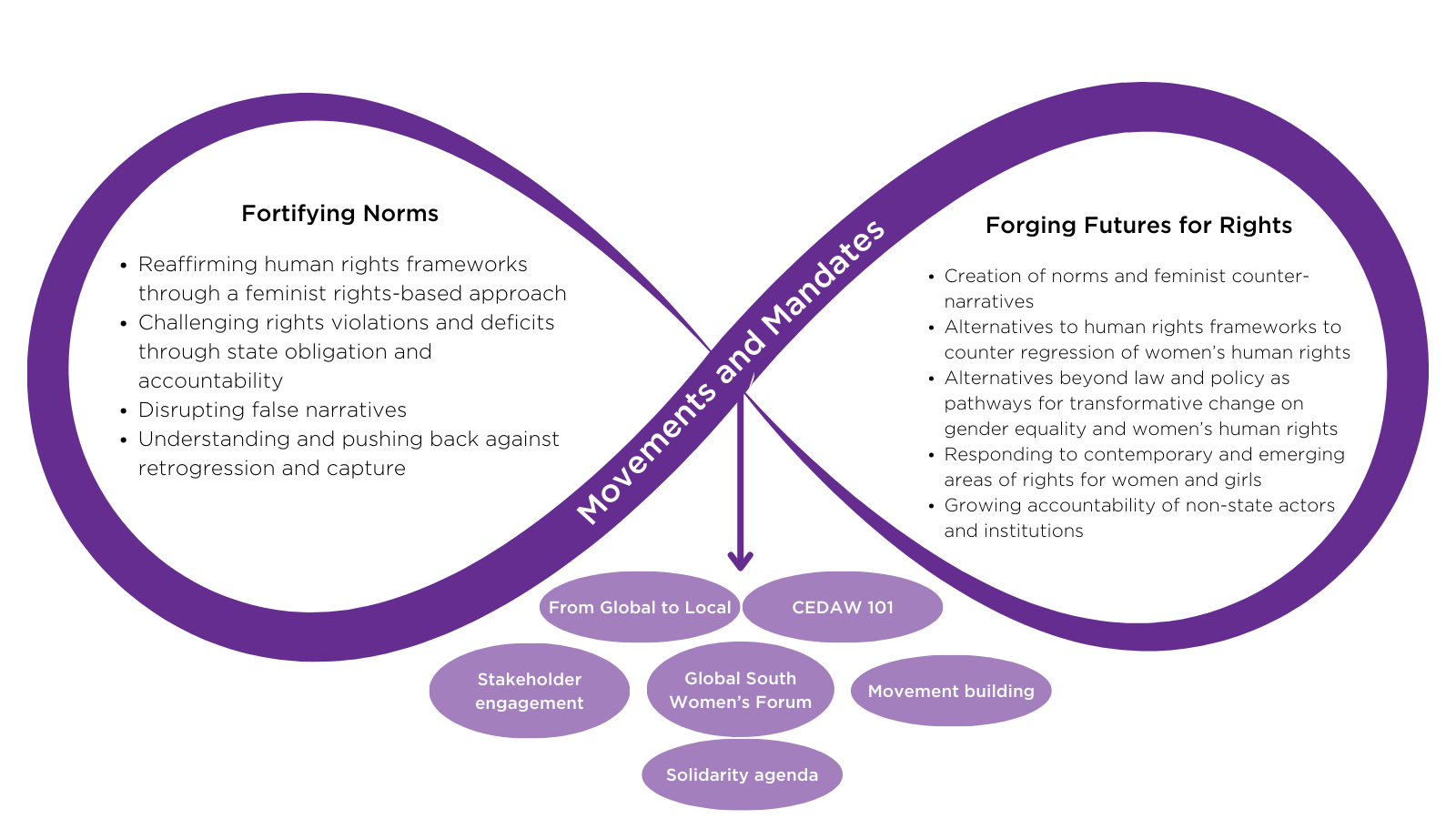
Feminists and women’s rights movements are fighting for transformative change and equality on many fronts. The pressing context of anti-rights and ‘anti-gender’ politics; the climate and debt crises ravaging the Global South; the inequalities and injustices of extractive, profit-oriented, neocolonial and neoliberal economic and development agendas; coordinated effortsto undermine multilateral institutions and international cooperation—all have deepened the vulnerable situations faced by women, especially those from structurally excluded and marginalised groups.
This context—while looking different in some ways—is not new. It informed IWRAW Asia Pacific’s recently completed 2020-2024 Strategic Plan, and the outcomes and lessons of that work provide the foundation for a new 2025-2030 strategy.
 Being grounded in decades of experience with co-creating collaborative strategies that demand equality and rights from States and the institutions and blocs within which they function, has enabled us to engage with wider ecosystems—of funders, humanitarian and human rights movements, as well as other stakeholders—that work together to deliver on gender equality. IWRAW Asia Pacific continues to work with communities on the ground to co-create knowledge-exchanges and build linkages across movements and structures, to enable collective and intersected actions and strategies to advance Global South feminist visions of equality and justice.
Being grounded in decades of experience with co-creating collaborative strategies that demand equality and rights from States and the institutions and blocs within which they function, has enabled us to engage with wider ecosystems—of funders, humanitarian and human rights movements, as well as other stakeholders—that work together to deliver on gender equality. IWRAW Asia Pacific continues to work with communities on the ground to co-create knowledge-exchanges and build linkages across movements and structures, to enable collective and intersected actions and strategies to advance Global South feminist visions of equality and justice.
![]()
As an integral part of the feminist counter to the present context, our organisation is committed to upholding and realising the normative standards developed, agreed upon, and enhanced by the global communities. We build on our lessons from the past five years in our new strategy, Cultivating Rights, Rooting Resilience.
For the next six years (2025–2030), IWRAW Asia Pacific’s programming will be organised across overlapping approaches, guided by its organisational mandate and the feminist human rights movements of which it is part and to which it stands in service. These approaches are:

The three strategic pillars will work together to respond to three broad themes, emerging from the lessons of our previous strategic plan, that require critical and transformational action by feminist and women’s human rights movements due to their direct and pervasive impact on the rights and realities of women and girls:
The criticality of gender-based violence and identities informs all our work in a cross-cutting way.
In undertaking feminist intersectional analyses and approaches, we foreground consideration of the myriad identities that drive the work of claiming rights for women and gender-diverse people. Our 2025-2030 strategy builds on our earlier work and implements our political approach to marginalised women to resist these forces of oppression/regression through collaborations with human rights institutions, civil society groups, legal aid groups, academic institutions, trade unions/labour collectives and women’s rights organisations and building strong solidarity and resistance/resilience in our movements and growing our collective impact.
The Cultivating Rights, Rooting Resilience programme will address the above themes, committing to partnering with the feminist movements for human rights. It will work with them to hold onto and sustain the normative gains that we have made together, as well as build for the future.
We will engage with emerging issues, innovations and changes centred around three strategic pillars, through which we will design our change pathways, deliver on our organisational mandate and support the feminist and women’s human rights movements. The pillars will work together to deliver on the central vision of IWRAW Asia Pacific, mandated by its communities, constituencies, partners and allies.








